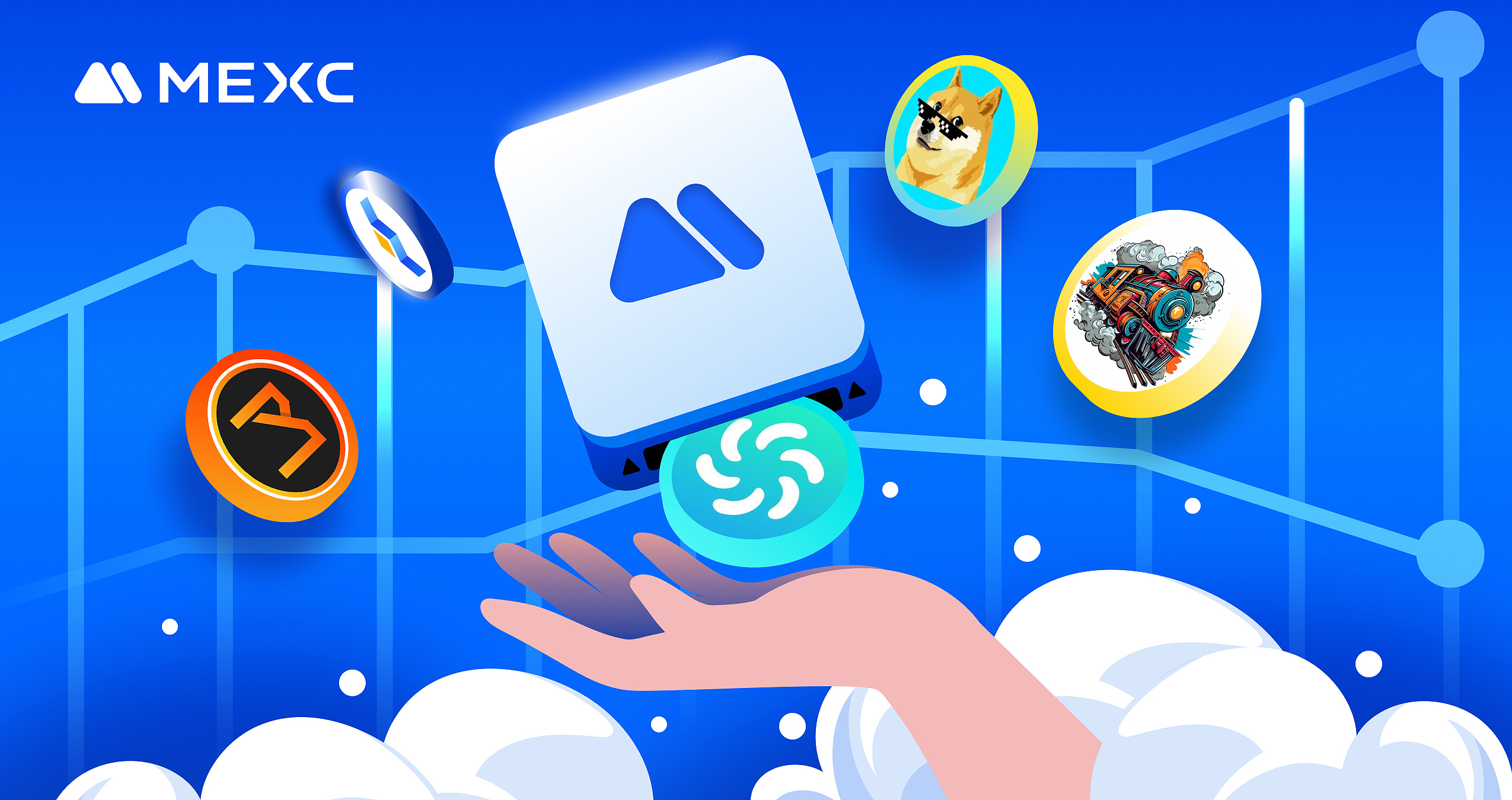With the launch of the Aptos mainnet “Aptos Autumn” and the mainnet token APT launch, Aptos has once again become the focus of attention. Previously, some Aptos ecological projects have moved to the Aptos Autumn network.
MEXC listed APT at 00:45 on October 19th, becoming the first trading platform to list the token. At the same time, MEXC also launched the Aptos network popular project PK competition, through which you can sign up to recommend Aptos ecological projects.
According to aptos.systems data, there are a total of 227 Aptos ecological projects, including 215 mainnet projects and 12 testnet projects. These include ten categories of Aggregator, DeFi, Games, Infrastructure, Launchpad, Meme, NFT, NFT Market, Tools, and Wallet, DEX, lending, stable token, NFT, domain name service, wallet and other basic business forms that are basically available. However, most of them are in the early stage of testing or development.

Source:MEXC
Among them, the three track projects of DeFi, NFT, and Infrastructure projects reached 69, 60, and 31 respectively. This article will briefly introduce some of the main track projects such as DeFi, NFT (including NFT Market), and wallets.
DeFi
- Pontem, a DeFi infrastructure studio
Pontem is a product development studio working with Aptos to build basic dApps and other decentralized infrastructure such as development tools, EVM, AMM, etc.
At present, the Pontem wallet and Liquidswap protocol have been incubated in the Aptos ecosystem. Pontem has many years of blockchain development background, which it developed DPoS Dapp Crypti in 2014, founded the Wings DAO platform in 2016, and built Dfinance (A decentralized infrastructure of various financial and DeFi tools and products designed for non-technical people).
Pontem raised $4.5 million in June 2021 from more than 30 investors, led by Mechanism Capital and Kenetic Capital, with participation from Alameda Ventures, Delphi Ventures, AU21 Capital, etc.
- Liquidswap, a decentralized exchange protocol
Liquidswap is modeled on Uniswap and Curve, a decentralized trading protocol based on AMM, smart futures developed by Pontem and written in Move language. According to the information on the official website, Liquidswap supports cross-chain transfers and tradings through bridges.
Features and features of Liquidswap include:
-Uncorrelated token swaps (similar to Uniswap V2);
-Stable swaps for correlated assets, using a different liquidity curve;
-A DAO treasury that receives a part of every swap transaction fee;
-Dynamic fees: managed by treasury multisig and dao in the future.
-Written in Move: a new smart contract language designed with security in mind;
-High speed thanks to Aptos’ parallel transaction execution engine;
-Formal verification partially complete: full formal verification.
- Decentralized exchange protocol CarboSwap
CarboSwap is an AMM-based decentralized exchange (DEX), but currently we cannot see more effective information on the CarboSwap official website. According to the official statement, CarboSwap is building an easy access for its user-base to provide liquidity and farm, stake/lock tokens and even have access to flashloan services for a small fee.
CarboSwap also tries to solve the problem of impermanent losses in liquidity mining through the incentives of native tokens. However, we do not know the specific way. CarboSwap will also launch its own native token for staking, liquidity mining, etc.
- Solar Dex, an order book exchange
Solar Dex is a relatively mature project migrated from the Solana chain and deployed on Aptos, supporting Swap, staking, and liquidity mining. Committed to being a centralized investment vehicle, while maintaining the essence of DeFi through a completely non-custodial approach to fund management.
Solar DEX Core Functions and Their Features:
(1)Automatic Liquidity Lock: Solar Dex has a unique forced liquidity pool lock function, which eliminates the need for third-party liquidity lock. This helps minimize the risk of carpet pulling.
(2)Liquidity Caps: The platform will use liquidity caps as a transparent means of showing how much liquidity is in the pool so investors can understand the actual value of their tokens.
(3)Token Exchange: Users can trade in mining pools with the help of Solar DEX exchange orders. Tokens are transferred from a user’s account to the exchange’s source token account, and then from the exchange’s destination account to the user’s destination account.
(4)Order book: The Solar DEX order book is a decentralized L2 exchange designed to attract users who are used to traditional centralized exchanges to use the platform to trade without friction and low threshold.
- DDEX aggregator Hippo Labs
Similar to 1inch, Hippo Labs is a native DEX aggregator on Aptos, which can aggregate the trading information of all DEXs on the Aptos chain, enabling users to exchange tokens at the most suitable trading rate.
Main features of Hippo Labs include:
-Trading Aggregator: Helps users to compare the trading rates of all DEXs in the Aptos ecosystem more quickly.
– Open-source Swap protocol: including Constant-product swap, Stable-cureve swap, Piecewise constant-product swap. The last item, Pswap, is a gas-saving optimization for constant-product swapping, and can also be extended to support Non-pegged trading pairs. With the help of oracles, it can serve as the basis for Automated Concentrated Liquidity.
– Move to Typescript Transpiler: As the number of DEXs in the Aptos ecosystem increases, it is impossible to manually integrate with each project, so the team built a move-to-ts transpiler to solve this problem. The specific operation process is: Automatically obtain the data on the chain and use the translated TypeScript code to generate accurate quotations for the user on the front end; Automatically generate a multi-hop trading that connects multiple DEXs in a single trading.
– Trading Simulation API: The team recently developed and merged the simulation API into the Aptos-core repository for the use by developers of the wallet. This feature provides accurate gas fee forecasts for each transaction and enables users to preview changes to wallet balances when confirming transactions.
– Aptos wallet adapter: It will support most wallets in the Aptos ecosystem. In addition to the self-developed Hippo wallet, it also supports Aptos official wallet, Martian wallet, the Fewcha wallet, etc.
NFT
- NFT trading market Souffl3
Souffl3 is an NFT aggregation trading platform on Aptos, which provides one-click help creators and users to complete functions such as finding floor prices and casting. Users can issue, list and trade NFT assets on Aptos. There are currently 12 NFT projects.
Souffl3 provides tools such as one-click floor sweeping, social trading, batch listing, delisting, quotation, and price change. In addition, Souffl3 has launched functions such as copy trading and pending order purchases.
Souffl3 has also launched NFT mint tracking and Launchpad functions. Users can monitor their own interested NFT futures, and scheduled mint, price limit mint, automatic mint, etc. For creators, Souffl3 opens up an interface for creators to release works with one click without code.
In the personal home page panel, Souffl3 counts and displays the total purchase quantity, value, total spending value, and profit within a limited period of time in the account according to the user’s trading records.
- NFT trading market Topaz
Topaz is supported by the Aptos team, and there are currently 20 NFT projects. Like Souffl3, it is still in the early stage of its ecological development, which means it cannot be measured from basic information such as the number of NFT projects and transaction volume. It depends on the development of Aptos itself.
Similar to Opensea, Topaz’s products provide trading activities such as purchase, casting, and sale, and support Launchpad and projects to be displayed on the Mint page. To launch a Launchpad project, you will need to fill in the form and wait for the platform to review and process.
Previously, Topaz launched a series of NFT badge activities to attract users to participate in the interaction and plan future airdrops.
Infrastructure
- Decentralized Oracle DotOracle
The oracle is the foundation of everything such as DeFi, CEX, etc. It is a bridge between on-chain and off-chain data links, and can provide functions such as price feeds. It can be said that there would be no DeFi today without the oracle.
The decentralized oracle DotOracle provides real-time multi-source data by collaborating with multiple off-chain worker nodes. At the same time, DotOracle is also a cross-chain liquidity network, providing a fast, low-price, and secure way to transfer liquidity between EVM and Non EVM (including Casper, Near, Solana, and Aptos, etc.) and Layer2 blockchains.
In addition to this, DotOracle also provides a multi-chain NFT bridge that provides high scalability and security by creating wrapper NFTs that contain metadata of the original asset (rather than copying the original asset itself).
- Aggregate Wallet Martian
Martian is one of the main wallets on Aptos and currently provides a Chrome plug-in version, which can be used to manage digital assets and access the wallet of Dapps on the Aptos chain, and supports minting NFTs on the Aptos development network. It is wallet that is compatible with most projects in the Aptos ecosystem.
Martian’s product structure is: Token storage management, reception and transfer; custom NFT casting, support for creating NFT and NFT collections; aggregate ecological Token trading platform, NFT trading platform, Launch pad and other applications. Users can directly click to go to the corresponding product.
- Aptos Name Service (ANS)
Aptos Name Service(ANS) is the official domain name service developed by the Aptos Labs team, and has been launched in Aptos Autumn on October 19, allowing Aptos users to use human-readable .apt names for their Aptos wallet addresses. ANS opens the registration of names with 3 characters and above, and each domain name will be registered according to the annual rental model, after which a longer registration period will be enabled.
Note: This article is organized by members of the MEXC community. The opinions in this article do not represent the official opinions of MEXC, nor do they constitute any investment advice.
Join MEXC and Get up to $10,000 Bonus!
Sign Up


